‘Inflammaging’
What does it mean? The new beauty buzz word is a fusion of ‘inflammation’ and ‘ageing’. Inflammation plays a significant role in the ageing process. Chronic, low-grade inflammation occurs as a result of the body’s inflammatory responses being heightened and sustained persistently over time.
How does inflammation affect the skin and ageing?
Inflammation can contribute to ageing of the skin in a variety of ways, impacting its structure, function, and appearance. ‘Inflammaging’ can lead to the development of wrinkles, a loss of elasticity, and other signs associated with ageing. The more inflamed our skin is, the faster it will breakdown and age.
- Breaks down collagen and elastin fibers leading to wrinkles and sagging skin.
- DNA Damage and Repair.
- Tissue Degeneration which accelerates the ageing process.
- Oxidative stress which leads to cellular damage and ageing.
- Impaired skin barrier function, leading to dryness, sensitivity, and an overall aged appearance.
- Slows down skin cell turnover affecting the overall texture and appearance of the skin.
- Increased sensitivity to UV Radiation causing pigmentation, and a breakdown of collagen and elastin fibres.
- Accelerated telomere shortening.
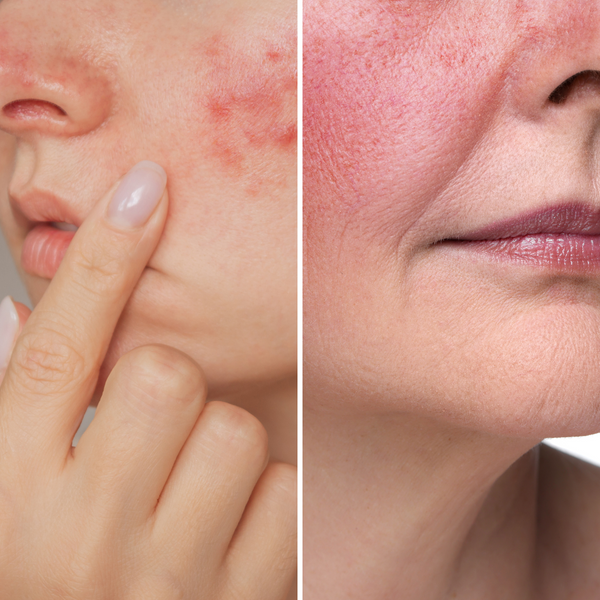
What does inflammation on the skin look like?
Inflammation is the body’s natural response to external aggressors and in small doses, can be beneficial. It’s our bodies way of signalling stress from the inside out.
There are two types of inflammation that the skin experiences: acute inflammation and chronic inflammation. Visible inflammation appears as redness, irritation and in some cases a rash with minor swelling. This acute form of inflammation is a healthy response from the body to everyday external stressors such as bacteria or a foreign substance — pollution, chemical irritants like detergents or shower gels — or internal stressors such as a poor diet, and lack of sleep. Symptoms can arise quickly and will eventually disappear.
‘Inflammaging’, is a chronic form of inflammation, which is not always as visible. It silently wreaks havoc on skin, breaking down structural proteins (such as collagen and elastin), diminishing skin barrier function and causing redness or dehydration overtime. The changes it causes are typically attributed to the normal aging process, but ‘inflammaging’ accelerates this process.
How to prevent ‘Inflammaging’?
- Adopt a skincare routine which incorporates anti-inflammatory ingredients
- Healthy diet with limited sugar and processed foods
- Stay hydrated
- Exercise regularly and maintain a healthy weight
- Adequate sleep
- Stress Management
- No smoking
- Limit alcohol consumption
- Sun protection
- Omega-3 Fatty Acids
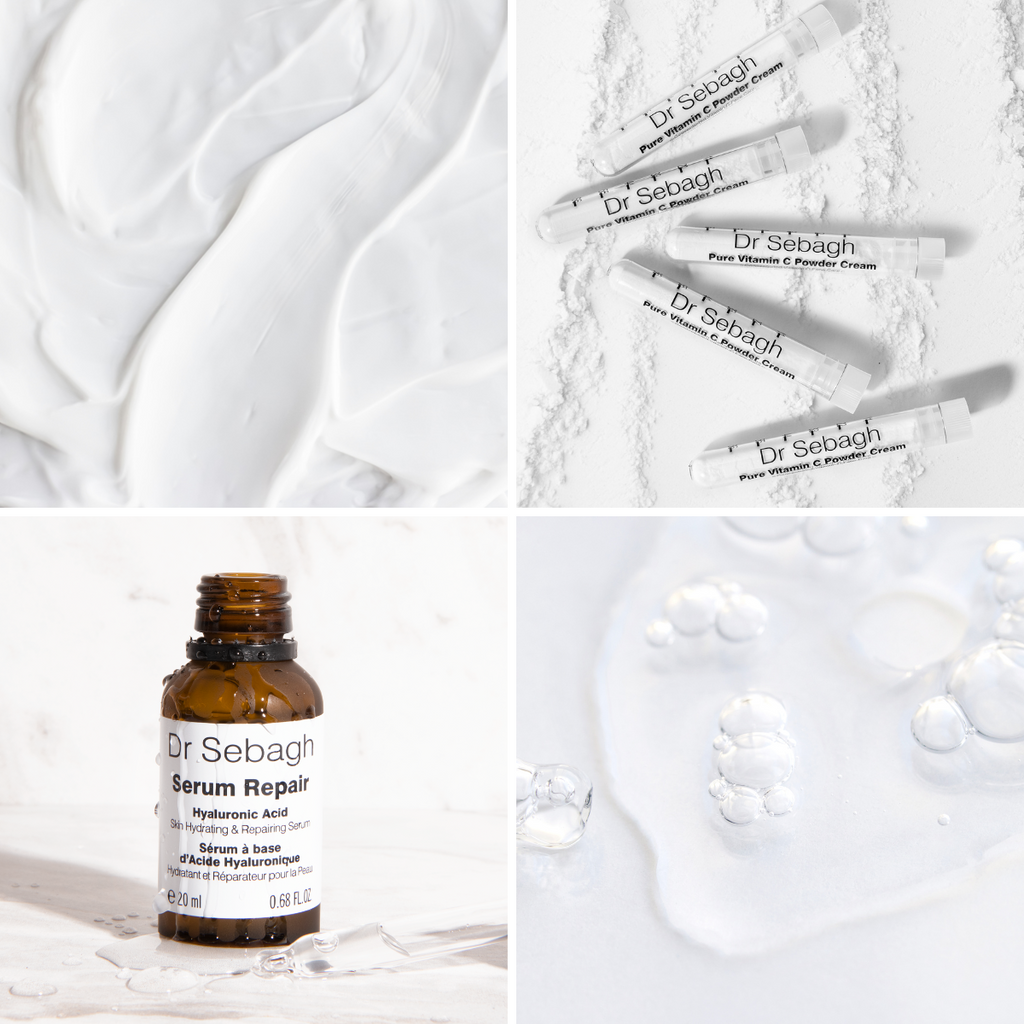
What are the best anti-inflammatory skin care ingredients?
When it comes to calming redness and inflammation, reach for these skincare ingredients.
- Ceramides
- Niacinamide
- Green tea
- Oat-inspired compounds
- Vitamin C
- Vitamin E
- Hyaluronic Acid
- Resveratrol
- Rosehip Seed Oil
- Retinol and retinoids can help build back depleted collagen and control skin cell turnover, however they should be used with caution. For more information on Retinol read the Retinol 101 skin secrets blog post.

Dr Sebagh High Maintenance Cream is rich in ceramides, vitamin E and hyaluronic acid.
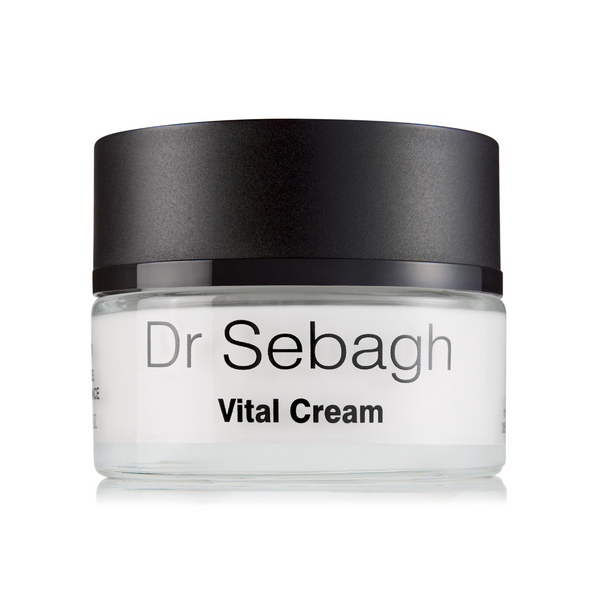
Dr Sebagh Vital Cream is rich in ceramides, lipids, proteins and zinc.

Dr Sebagh Extreme Maintenance Cream is rich in ceramides, hyaluronic acid, rose hip seed oil.
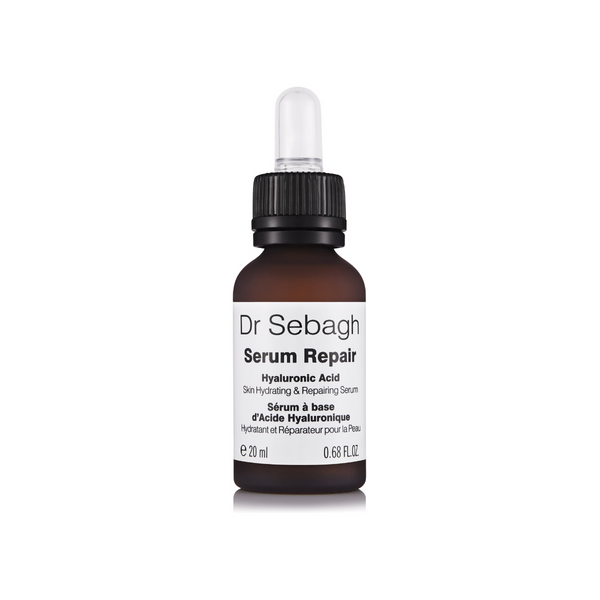
Dr Sebagh Serum Repair is rich in hyaluronic acid.
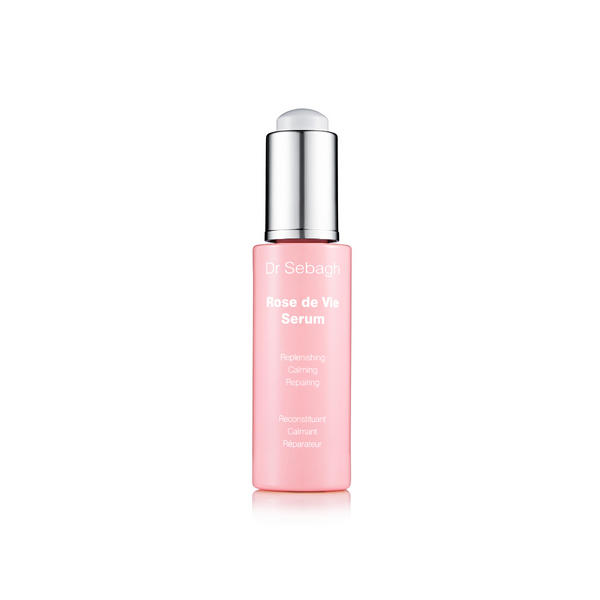
Dr Sebagh Rose de Vie Serum is rich in rose hip seed oil, vitamin E and C.

Dr Sebagh Supreme Maintenance Youth Serum is rich in hyaluronic acid, Resveratrol and vitamin C.
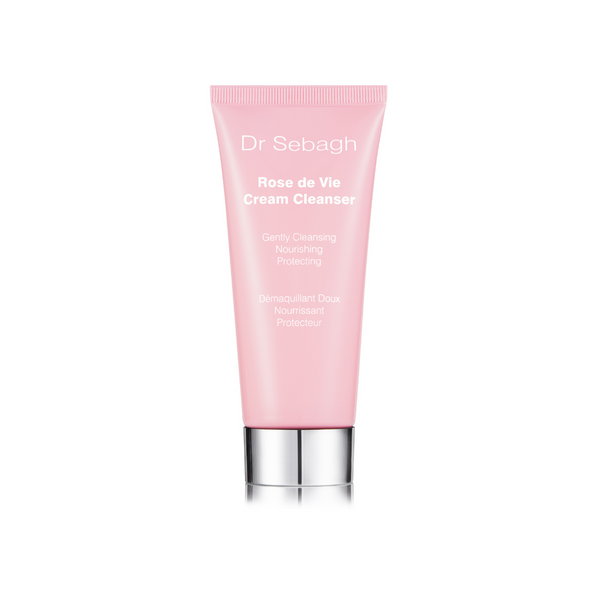
Dr Sebagh Rose de Vie Cream Cleanser is rich in vitamin E, lipids, proteins and zinc.
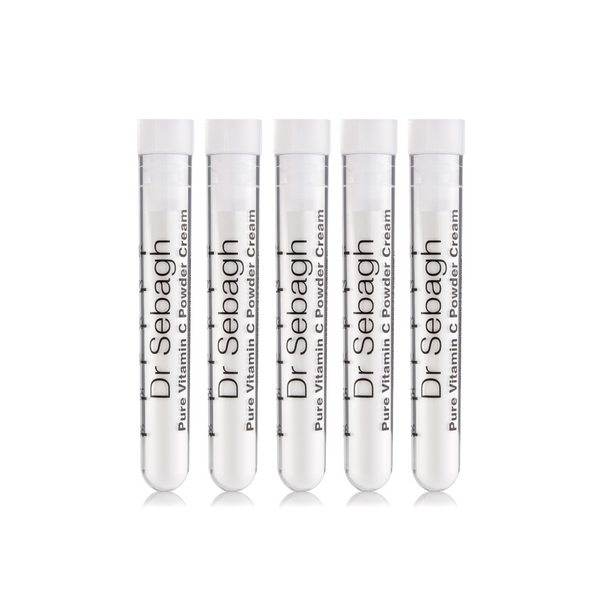
Dr Sebagh Pure Vitamin C Powder Cream is rich in antioxidant vitamin C.
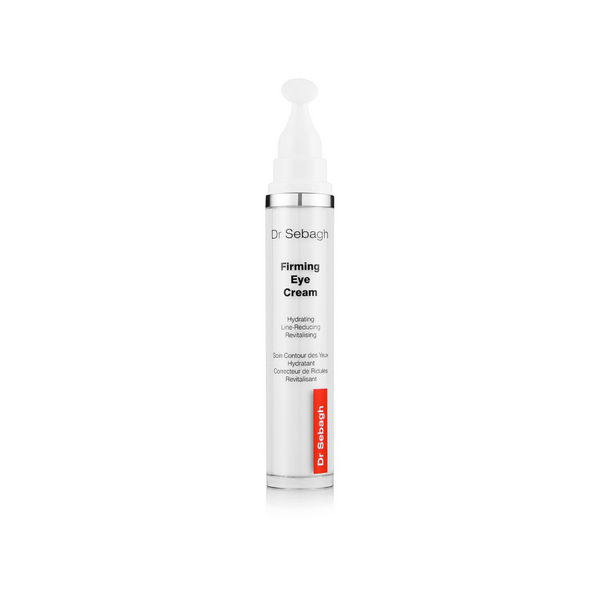
Dr Sebagh Firming Eye Cream is rich in ceramides and hyaluronic acid.
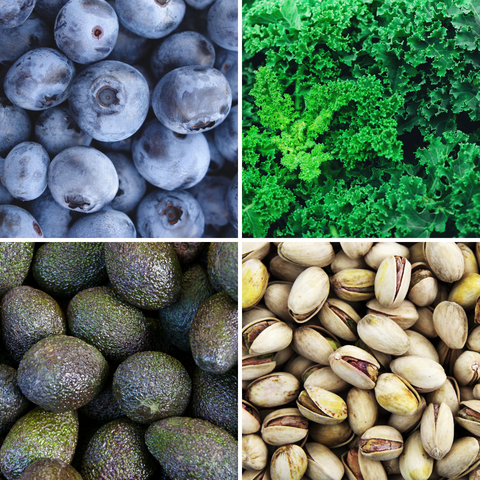
What are the best anti-inflammatory foods to incorporate into your diet?
- Fatty fish – salmon, mackerel, sardines, trout. All are rich in omega-3 acids, which help reduce inflammation and support cardiovascular health.
- Berries – blueberries, strawberries, raspberries and blackberries are rich in antioxidants called polyphenols.
- Leafy greens – spinach, kale and swiss chard are all high in vitamins, minerals and antioxidants.
- Nuts and seeds – almonds, walnuts, flaxseeds, chia seeds and hemp seeds contain healthy fats, fibre, and antioxidants. They are good sources of alpha-linolenic acid (ALA), which is a type of omega-3 fatty acid.
- Tumeric – a powerful anti-inflammatory and antioxidant.
- Tomatoes – rich in lycopene, an antioxidant that has anti-inflammatory properties. Cooking tomatoes can enhance the absorption of lycopene.
- Olive oil – contains monosaturated fats and antioxidants that contribute to its anti-inflammatory effects.
- Avocado – rich in monosaturated fats and antioxidants, including tocopherols and carotenoids, which help combat inflammation.
- Broccoli – potent anti-inflammatory and antioxidant properties.
- Green Tea – rich in polyphenols, particularly catechines, which have an anti-inflammatory effect.



Mel
I have now been using the Youth Serum, Serum Repair and Rose de vie Serum for approximately 2 months now. I was a bit reluctant at first as it was a bit over my usual budget, BUT I’m so glad I went for it. I think these products are fantastic and I’ve noticed such a huge difference in my skin’s appearance. My complexion is much brighter, my skin is much smoother and old acne scars have faded, some have even disappeared! It’s 5 stars from me.
RUTH LEE
Love their products
They work to keep my face
NO WINKLES AT AGE 70
Ruth Lee
I have been using there products for
Years and years Now at age 70 I still look
Good No wrinkles look much
Younger
Sully. Makhani
———
Dr Sebagh replied:
Hi Sully, Thank you for your comment. Are you able to tell us what kind of concerns you’ve been having with your skin in the last three months? Is it skin texture, breakouts, redness and sensitivity or a loss of volume/relaxing skin? Once we know more information we can advise you. Best wishes, The Dr Sebagh team